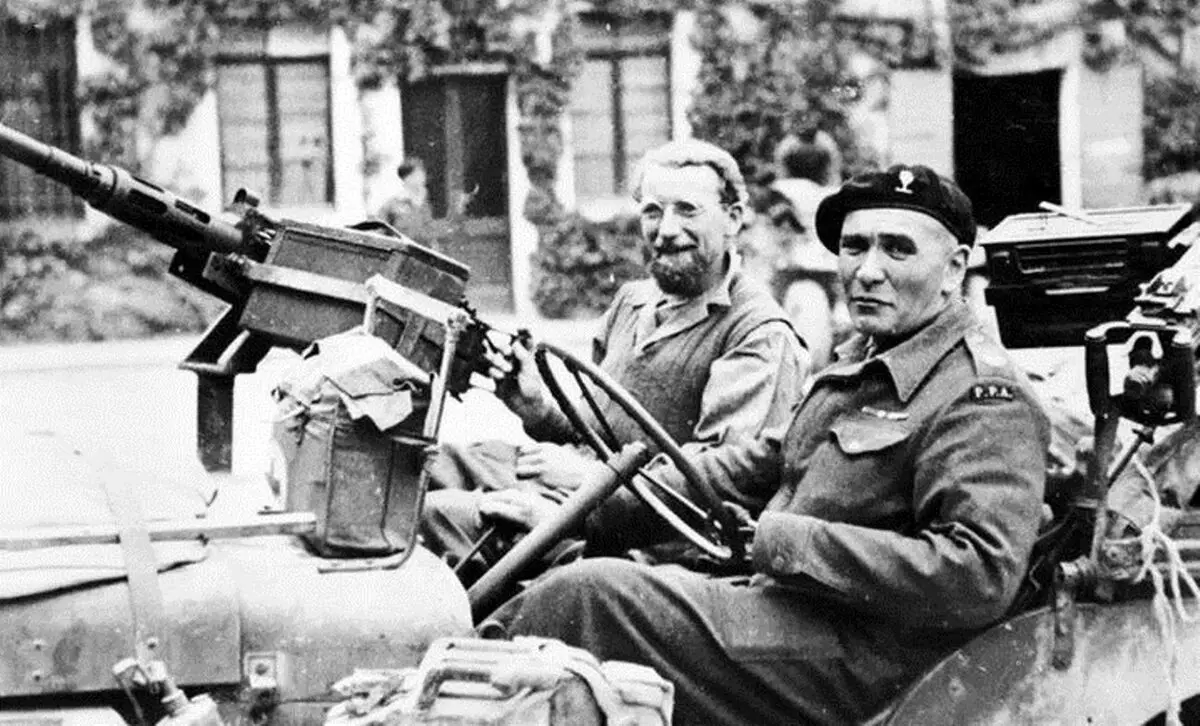
"Popsky's personal army" in 1942-1943 brought horror on the Germans in North Africa. It was the unique brainchild of Colonel Vladimir Polyakova.
In those years, until Soviet citizens defended their homeland from the fascists, the Russian emigrants cried in different fronts"Popsky's personal army" in 1942-1943 brought horror on the Germans in North Africa. It was the unique brainchild of Colonel Vladimir Polyakova.
Road to the desertVladimir Polyakov was an emigrant in the second generation. Back in 1894, Vladimir's father moved to Belgium, three years before Vladimir himself appeared. He studied at St. John's College in English Cambridge. He joined the ranks of the French army, after long hesitation in 1917. There he got wound in battle with the Germans.
In the period between wars, Pozakov in Egypt. There he worked on a sugar factory and traveled in the desert at Ford. Due to this, he learned to find oasis, navigate the compass and watched animal behavior. Weeks in the desert destroyed Penyakov's marriage. The spouse did not like his journey, so they had to divorce. But donating marriage, he received invaluable experience by the beginning of World War II. Penyakov was a lieutenant of the British army by 1940. At this time in North Africa began fighting against countries. In 1942, with the authorization of the command, the Russian emigrant has formed an elite divergent reconnaissance detachment of long-range action to raise the enemy to the rear.
"Poly Army Popsky"Penakov began to call himself "Major Popsky", in order to simplify the negotiations. He borrowed the name from comics. Officially, its formation was called "Fighter Far Action No. 1".. It is worth exaggerating the degree of independence of Penyakov, moreover, it was difficult to call the army a detachment of 23 people. For all years of war, the service has passed more than a hundred people. Mostly in the personal army, ethnic Arabs were listed, which had a good idea of life in the desert and hated Italian colonializers.
Black berets wheel in the sands on American jeeps. They were armed with colts, Tompson machine gun pistols, knives and grenades. They fired the objects of enemy machine guns during the night raids. There was a case when in eastern Libya a detachment destroyed the airfield of Barz, where 30 Italian aircraft were blown up. Thanks to this, the base was destroyed in the desert, which was engaged in the supply of fascist tanks. Communications with local tribes and sheikhs helped the pearyas to look for enemies. In early 1943, during the Tunisian campaign, the Penyakov army helped British tankers by ordering Erwin Rommel's strength from the flank. As a result, the legendary fox desert was completely crushed.
After the British finished the liberation of North Africa, RRA was transferred to Italy. They also engaged in deep intelligence in the rear of the enemy. Prenkov himself recalled that there were two runaway Russian prisoners of war to the detachment. Here fighters became more difficult to fight than in the usual desert. They are not accustomed to rivers and canals, where many mine fields. During the liberation of the Italian farm in 1944, Vladimir Pozakov received an injury and ultimately, the doctors had to amputate it. But the detachment reached Ravenna, after the loss of the leader. Finally dissolved the Army of Popsky in Austria in September 1945.
Penyakov talents were appreciated by command. In 1945, he was awarded to the British Order "For outstanding merit". He died in 1951 in London. But before his death, he managed to publish memoirs, thanks to which he learned the whole world about the feats of the "Poly Army". On the British special forces, the experience of this formation had a great influence, and many former subordinates of Popsky in the future were headed by the detachments themselves.
